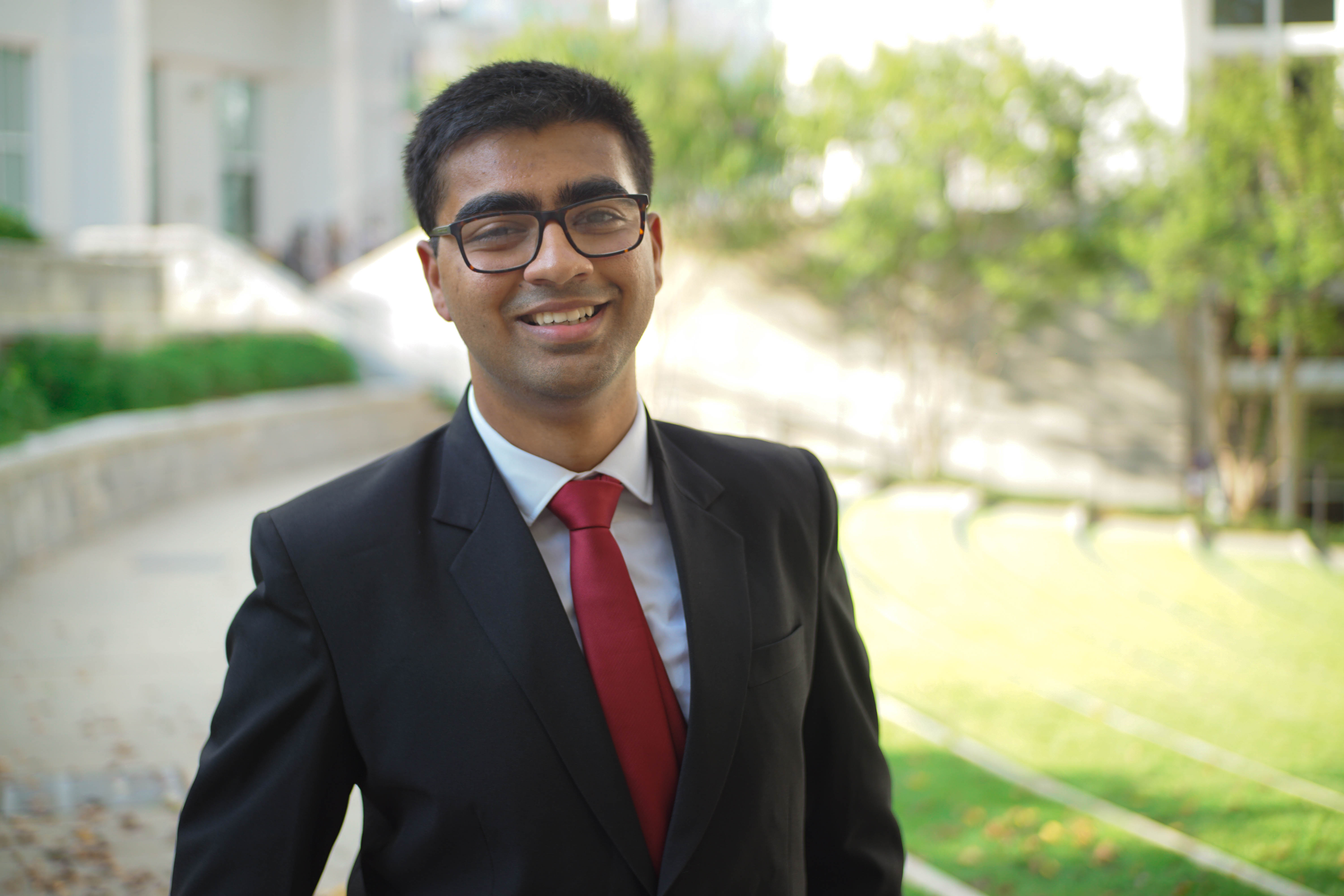Although students at Emory are no strangers to balancing many activities at once, few can say they have worked a full-time job while taking university courses like Nishchinth Pai, a second-year Australian exchange student at the Goizueta Business School for the 2017-2018 academic year.
“I would rock up to the office at about 8 a.m,” Pai said. “[At] 5 p.m., I would get on the shuttle [and at] 5:30 p.m., I was back at [University of Wollongong (UOW)]. I would study again from 5:30 p.m. till about 10 p.m. or 11 p.m. I would go home and sleep, then wake up and do this again about seven days a week.”
Pai was fresh out of high school when he took on the responsibilities of a full-time employee for HLB Mann Judd in Wollongong, Australia. While working for the company, he studied commerce part time at the University of Wollongong, adopting a routine that forced him to maximize every minute of his day.
His plan would have had him graduate in six years rather than in three, but would still provide him with enough time in a week to get through his course material.
Although Pai eventually left the company in June 2017, the busy schedule he had adopted gave him a discipline that makes his choice of words careful and his demeanor calm and cool. Even as he sipped his coffee and jokingly ranted about a miserable delivery experience with Amazon, he could quickly change his dynamic and become firm and clear when talking about working full-time.
“What I did was completely crazy,” said Pai, giggling. “To be honest, if I went back home tomorrow I don’t think I could do it again.”
Working full-time at the age of 18 is a difficult task for anyone, and Pai — still uncertain about his occupational goals — was no different. He disliked his first month, during which he worked for the firm’s accounting department.
“There [are] people who like accounting,” Pai said. “It’s very structured, and it’s very certain … [but] If there’s one thing you don’t like about it, you will hate. I hated it.”
Driven by the core tenet of doing “good work,” Pai refused to allow himself to work dispassionately. After he requested a switch to a team that he found interesting, he was moved to a small team that focused on money management for “very wealthy clients,” according to Pai.
While Pai had to trudge through the occasional misstep, he became better at his job through making mistakes. As a result, his work was at times handsomely rewarded.
But Pai eventually realized that he wanted to work with companies rather than having individual clients because working with businesses would allow him to “think in a completely different way,” he said.
He also chose to leave his job to study abroad at Emory’s Goizueta Business School, citing its strong finance department and reputation. Pai strives to one day become a part of the United States’ booming finance industry, a daunting task that he is propelled toward by his strict work ethic.
“[Pai] is very diligent and hardworking,” his friend Manishka Daryanani (20C) said. “He always puts his work before me. It’s a good thing [because] he won’t say that [he’s] going to give up time studying to hang out with me, and I admire that.”
Though cultivated discipline and diligence is associated with a compromised social life, Pai has found an equilibrium between his work and his personal life, projecting himself as driven and motivated without seeming artificial.
“I would say he has a good mix of professionalism and personality,” Pai’s friend and fellow Goizueta Business School exchange student Joshua Kothe said. “He is a pragmatic thinker who is laid back in stressful situations, but at the same time dedicated to getting the job done.”.
With a significant amount of experience under his belt at such a young age, Pai said his philosophy is simple: Do a good job at whatever it is that he chooses to do.
“It’s just doing good work,” Pai said. “If you’re doing really good work … success will follow.”
CORRECTION (11/8/17 at 6:17 p.m.): Nishchinth Pai was incorrectly reported as studying mechanical engineering. He actually studies commerce.
CORRECTION (11/26/17 at 1:00 a.m.): A quote by Pai inaccurately describing an incident in which HLB Mann Judd made a purchase that lost money and represented inaccurately the situation to a client has been removed because the company represented accurately the purchase to the client, who did not lose money. The Wheel regrets the error.
Associate Editor | avpraka@emory.edu
Aditya Prakash (20C) is from Dubai, United Arab Emirates, pursuing a double major in neuroscience and behavioral biology and philosophy. He enjoys playing 16-bit indie games and arguing for his pronunciation of the word schedule. He half-jokingly aims to one day join The Onion or Clickhole, but until then he will continue to serve the Wheel.






